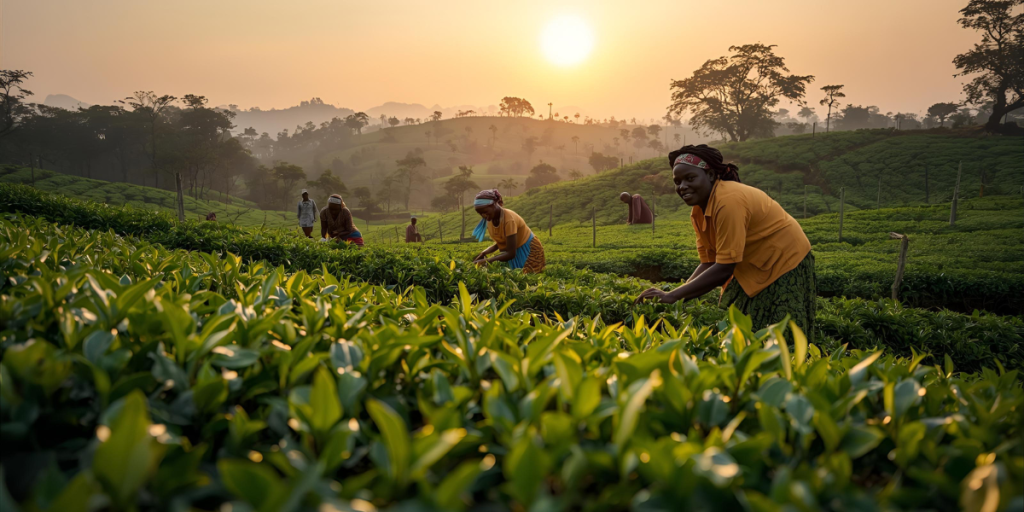
The Kenya Tea Development Agency (KTDA) stands as a pillar of Kenya’s tea industry, supporting millions of smallholder farmers who rely on tea as their primary livelihood. Yet, the agency has long grappled with systemic challenges corruption, inefficiencies, and outdated practices that threaten the sector’s sustainability and the welfare of its farmers. The bold KTDA Reforms represent a transformative agenda aimed at restoring transparency, fairness, and accountability. This article explores ten critical reasons why the government must defend these reforms at all costs to secure the future of Kenya’s tea industry.
Corruption has been a persistent blight within KTDA’s operations, siphoning funds meant for farmers and eroding trust. The KTDA Reforms introduce stringent anti-corruption policies and oversight mechanisms designed to eliminate financial malpractice. Protecting these reforms is vital to ensure that the profits rightfully belong to the farmers who labor tirelessly to cultivate the tea. This is consistent with wider efforts in Kenya to curb corruption in agricultural sectors, as detailed in the Transparency International Kenya report.
One of the reform’s key pillars is the modernization of KTDA’s processes through digital tools. From online payments to supply chain tracking, digitization promises increased efficiency and transparency. Government support is crucial to fend off resistance from stakeholders accustomed to opaque systems and to guarantee full implementation of these technologies. For more on how digital transformation is revolutionizing Kenyan agriculture, visit our related article Digital Transformation in Kenyan Agriculture.
For years, the Mombasa tea auction has operated behind closed doors, with little transparency and significant influence from brokers. The KTDA Reforms seek to digitize and regulate the auction process, ensuring real-time access to prices and eliminating artificial price manipulation. Greater auction transparency can boost Kenya’s global tea competitiveness and ensure fairer returns for producers. Without government protection, vested interests could roll back these digital reforms and return the sector to opaque practices. The World Tea News highlights recent innovations in the Kenyan tea auction that complement these reforms.
One of the most concerning challenges the KTDA Reforms address is the entrenched conflict of interest within the agency’s leadership. Historically, some board members and executives have held multiple positions across tea-related entities, blurring the lines between public service and private gain. The reforms seek to restructure leadership and introduce stricter eligibility criteria to eliminate these conflicts. If not protected, these individuals may reassert their influence and sabotage accountability mechanisms. See also our coverage on Governance Reforms in Kenyan Agriculture for broader context.
Despite being the backbone of Kenya’s tea sector, smallholder farmers often receive shockingly low payments after long harvest seasons. With middlemen and administrative overheads eating into their earnings, the KTDA Reforms aim to streamline payment systems and ensure a larger share of profits reaches the producers. By supporting direct payment models and cost reduction strategies, these reforms represent the best hope for restoring dignity and financial security to rural tea-growing communities. The government must ensure this transformation is irreversible. For deeper insights into farmers’ economic empowerment, check FAO Kenya’s report on smallholder empowerment.
The sustainability of Kenya’s tea industry hinges on robust supply chains that minimize waste and inefficiencies. The KTDA Reforms prioritize supply chain optimization through modern logistics and digital tracking systems. These measures reduce losses, increase accountability, and improve delivery times, ultimately benefiting farmers and buyers alike. For more insights on related agricultural reforms, see How Agricultural Reforms Improve Rural Livelihoods. Protecting these initiatives is essential to secure the sector’s future.
KTDA has historically faced governance challenges, including leadership disputes and inconsistent policies. Such instability hampers progress and discourages investment. The reforms introduce clear governance frameworks, define roles, and encourage participatory decision-making. Without steadfast government backing, these frameworks risk being ignored, causing the agency to revert to old dysfunctional patterns that undermine reform momentum.
Global tea consumers increasingly demand ethically sourced, high-quality products. KTDA Reforms align Kenya’s tea industry with international standards on sustainability and corporate governance. This alignment opens doors to premium markets and higher export revenues. Government support ensures that Kenyan tea remains competitive globally, fostering pride and prosperity among local farmers and stakeholders. The Sustainable Tea Initiative provides an overview of these international trends.
The KTDA Reforms have faced not only internal resistance but also external sabotage through misinformation campaigns aimed at discrediting the process. Such tactics seek to create doubt among farmers and the public, undermining confidence in the reforms. The government must actively counter these narratives with transparent communication and education initiatives, reinforcing the benefits and long-term vision of KTDA’s transformation.
Ultimately, the success of the KTDA Reforms will be measured by the trust rebuilt between the institution and the millions of Kenyan farmers it serves. These reforms lay the foundation for a culture of accountability, transparency, and ethical leadership. By defending these reforms vigorously, the government can secure a prosperous future for Kenya’s tea sector and set an example for reform efforts across the agricultural landscape.
The KTDA Reforms represent a bold and necessary shift in Kenya’s tea industry, addressing long-standing challenges from corruption to unfair pay. Their success depends on unwavering government support to overcome resistance and ensure these reforms take root. Protecting the reforms is not just about safeguarding an industry it is about empowering farmers, securing livelihoods, and restoring integrity to a sector vital to Kenya’s economy and identity. The government must stand firm and defend these reforms at all costs.